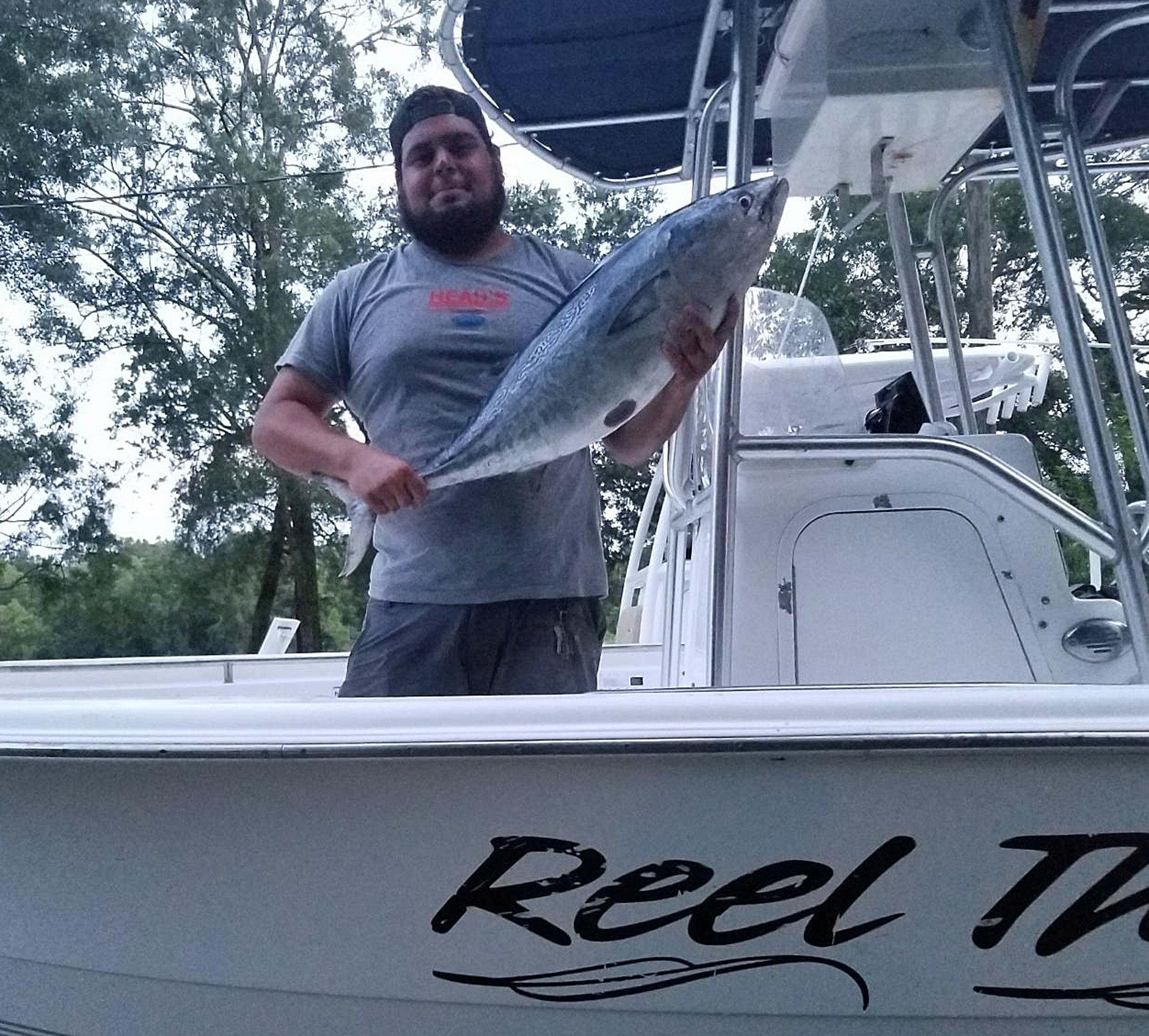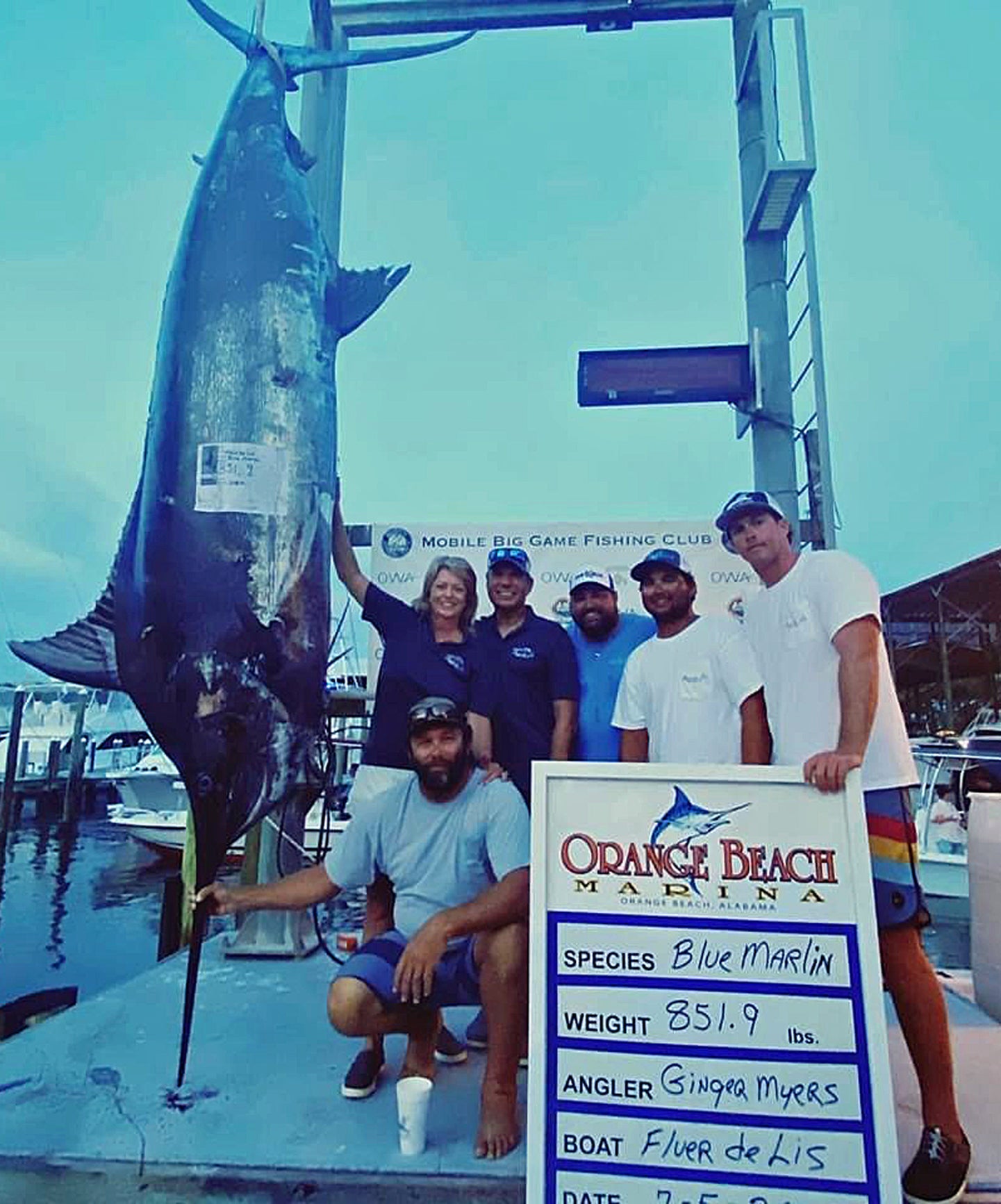By DAVID RAINER, Alabama Department of Conservation and Natural Resources
Kyle Davis swung the big fish into his 21-foot boat during the Alabama Deep Sea Fishing Rodeo this summer and let it flop on the deck for a minute, never considering what he had just landed.
The Irvington resident just thought the fish, a little tunny more commonly known as a bonito, would make some nice bait when he goes shark fishing.
“I was fishing for blackfin tuna in 1,200 feet of water,” Davis said. “It was not the location I normally go fishing. I’m only on a 21-foot boat. I pushed 74 miles out. I go out a little farther, and we got into a good school of bonito.
“We were catching them in varying sizes, some like that one. We were cutting them in half to freeze them for bait. We decided to keep that one to turn in at the rodeo. We had no idea we had a state record on board.”
What Davis accomplished by hauling in that little tunny was snapping the longest-held record in the Alabama Marine Resources Division’s (MRD) saltwater record book. Davis’ bonito weighed 22 pounds, 4 ounces to eclipse the 21.0-pound mark set by W.A. March Jr. of Mobile in 1956.
“If my buddy hadn’t called me the next day and told me it was a state record, it was about to be going out to be used as shark bait,” Davis said. “I called and asked the rodeo about it; they said not to do anything with it. Luckily, I still had it in the cooler. By the time they told me they needed the fish, I had it cut in half to get ready to freeze it.”
Fortunately, MRD biologists had plenty of evidence of the catch through the rodeo and confirmed the species, which is different from the smaller Atlantic bonita.
Fishing the rodeo is a big deal for Davis and his buddies. He admits he pushes the envelope a bit with a single-outboard boat during the rodeo.
“We plan for a while for the rodeo,” he said. “At the beginning of the year, I start finding spots with big fish, and then I leave them untouched until the rodeo. Honestly, I just wing it. If it’s pretty weather, I go far. If it’s not, I stay inshore.”
“I don’t normally go more than 50 to 60 miles in my boat, but I like going out to the pelagic waters and catching tuna. I like the taste of tuna. I was trying to put tuna on the board in a 21-foot boat, just to be known as being kind of crazy.”
To go that far, Davis takes a little extra fuel if he finds a bite he can’t resist.
“I’ve got an 80-gallon tank and get 2.9 miles per gallon,” he said. “I bring 30 gallons extra inside my console just in case. I tell my family that if I do go out that far, I know where Louisiana is. Louisiana is closer than Dauphin Island, so I tell them I’ll call them when I hit the Mississippi River.”
On that fateful day during the rodeo, Davis said they were “chunking” to entice a tuna bite. Chunking involves cutting dead bait into smaller pieces and letting them drift down to attract the targeted species.








